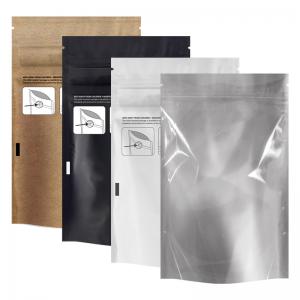Legislative leaders in Maryland have announced their interest in passing legislation to place a referendum on the ballot next year to legalize recreational marijuana. As a result, Maryland is on the precipice of a decision that could have a lasting impact on minority entrepreneurs interested in pursuing new business opportunities in the recreational cannabis industry.
Deck stacked against minorities
It’s no secret that communities of color were disproportionately affected by the war on drugs. According to the American Civil Liberties Union (ACLU), one out of every three Black males born today can expect to go to prison in his lifetime, as can one of every six Latino males – compared with one of every 17 white males.
While the medical cannabis industry is booming in Maryland, the communities most disproportionately and negatively affected by past drug laws are losing out. During the 2017 MMJ licensing process, Maryland minority businesses were essentially shut out when the Maryland Medical Cannabis Commission awarded 15 cultivation licenses.
Guess how many went to minority ownership groups? Hint: It’s a round number.
A resulting lawsuit produced three additional licenses and an ensuing disparity study titled “Business Disparities in the Maryland Market Area”.
The study provided strong evidence for applying race- and gender-conscious measures when awarding medical cannabis licenses given current disparities defined as “large, adverse and statistically significant.”
Unfortunately, despite this study, we believe minority entrepreneurs pursuing recreational cannabis permits might face these same conditions this time around as medical marijuana licensees will seek to be grandfathered into the recreational market.
Moreover, this approach will not level the playing field given the existing licensees’ current market share and access to investment capital.
Prioritize social equity
Assuming a fixed number of recreational cannabis licenses are allotted, the Legislature should support an application process that initially prioritizes minority business owners instead of chasing the false promises of significant tax income from the first few years of recreational sales.
Other states that transitioned from medical to recreational reported substantially less tax income than predicted from recreational sales.
So what’s the rush?
Why not instead take the high road, no pun intended, and allow minority ownership groups the necessary time to get established? Unfortunately, startups fail for two primary reasons: insufficient industry acumen and lack of capital.
Already today, in the far reaches of Maryland’s rural communities, there exist numerous cultivation facilities that are just waiting for the passage of recreational cannabis.These sizable, multimillion-dollar operations will squash the ability for new entrants that are not part of “the club.”
Promising legislation but …
Connecticut is one of the states leading the way to enact a system that supports social equity licenses ahead of current medical growers.
However, Connecticut and other states have struggled with rules to prevent licenses granted based on social equity from being bought up by multistate operators. Worthy concerns but not unsolvable.
During the 2021 session, the first comprehensive legalization bill, HB 32 – The Cannabis Legalization and Regulation, Inclusion, Restoration, and Rehabilitation Act of 2021 – was introduced and championed by Delegate Jazz Lewis. His legislation focused on racial and social justice, ended cannabis prohibition in Maryland and replaced it with a system to tax and regulate cannabis for adults 21 and older. In addition to legalizing the possession and cultivation of cannabis for adults, it included:
-
Expungement and release for past cannabis offenses.
-
A social equity program established to promote participation in the legal cannabis industry from minorities and those hardest hit by the war on cannabis.
-
Distribution of the bulk of tax revenue collected from legal cannabis sales to Maryland’s historically black colleges and universities.
-
Startup funding and training for social equity businesses.
-
Serving communities impacted by poverty, mass incarceration and racism.
State Sen. Brian Feldman introduced a separate bill, SB 708, on the Senate side.
Neither bill advanced in the 2021 session.
Clear goals needed
We know that grandfathering current medical license holders ahead of minority entrepreneurs will prevent economic empowerment for people of color due to market saturation and limiting access to capital.
We also know that if Maryland is going to pay more than lip service to the idea of ensuring diversity, inclusion and equity in a new and rapidly expanding sector, state lawmakers need to ask themselves, “What’s our goal?”
Is it to generate as much tax revenue as possible? Or is it to provide economic-empowerment opportunities for people of color whose communities were ravished by the war on drugs? Unfortunately, you cannot do both.


 English
English français
français Deutsch
Deutsch русский
русский italiano
italiano español
español português
português Nederlands
Nederlands 日本語
日本語 한국의
한국의











 2021-12-31
2021-12-31
 Online service
Online service +86 15375471059
+86 15375471059

